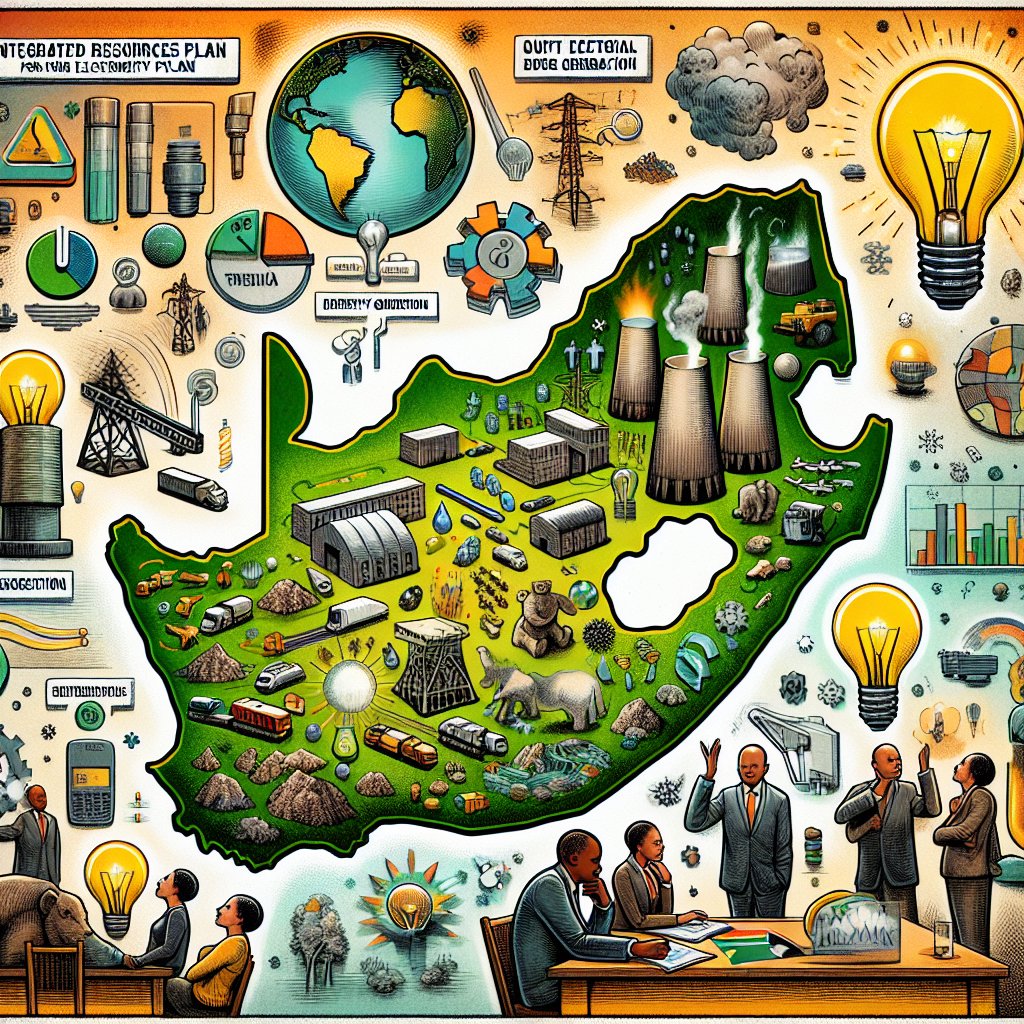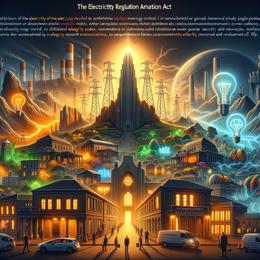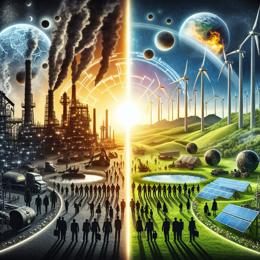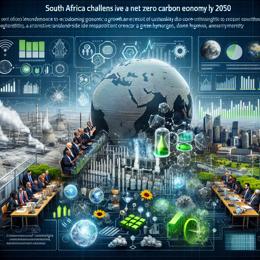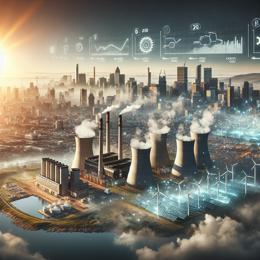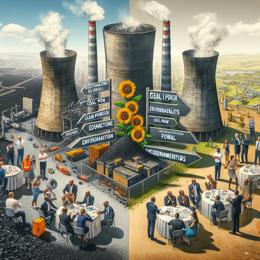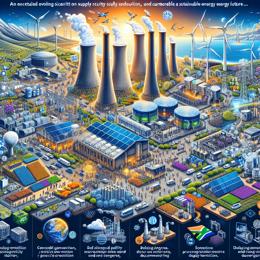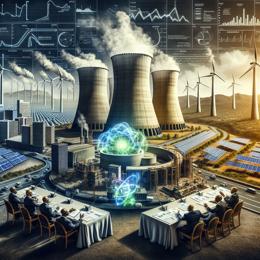Content created by AI
Draft IRP Released for Public Input Amidst Mixed Reviews from Energy Experts
The South African government has opened the floor for public commentary on the future of the country's electricity generation. The 2023 draft Integrated Resources Plan (IRP), which sets out the roadmap for expanding the country's generation capacity from 2023 to 2050, has stirred a mix of reactions within the energy sector.
The draft, which was gazetted earlier this week by Mineral Resources and Energy Minister Gwede Mantashe, details a two-phased expansion. The first phase focuses on developments up to 2030, while the second phase extends the vision to 2050. Its release signifies a crucial moment as South Africa grapples with energy generation challenges amidst a transitioning global energy landscape.
While the South African National Energy Development Institute’s (SANEDI) Energy Secretariat has endorsed the draft plan, not all feedback has been positive. Energy expert Chris Yelland has lambasted the draft as "shoddy," criticizing it for what he perceives as a lack of maturity and depth. Contrasting Yelland's viewpoint, Sampson Mamphweli from the Energy Secretariat at SANEDI has defended the draft. Mamphweli argues that the plan, while painting various pictures that some find confusing, is in fact clear and well-articulated, and not yet in its final form.
The draft IRP is now open to public scrutiny, allowing individuals and organizations to provide feedback. Following this period of public comment, the plan will undergo further evaluations by the National Economic Development and Labour Council (NEDLAC) before making its way back to the Cabinet for approval.
For a country burdened by rolling blackouts and an unstable power grid, the IRP is seen by many as a beacon of hope – a strategy to not only combat current electrical shortages but also to set South Africa on a sustainable path forward in terms of energy generation. The proposed plan encompasses a variety of energy sources, including traditional coal-fired power, renewable energy, and potential new technologies.
Public engagement is vital to the IRP's success, as it will shape the final document that dictates the nation's energy agenda. Whether the plan adequately addresses the pressing concerns of affordability, sustainability, and resilience in South Africa's energy sector is a question now in the hands of the South African public, energy stakeholders, and policymakers.
The period of comment will be a litmus test for the draft IRP as it faces scrutiny from multiple angles – economic, environmental, technical, and social. The outcome will steer the course of the nation's energy policy at a time when the global community is increasingly shifting away from fossil fuels and embracing renewable sources.
